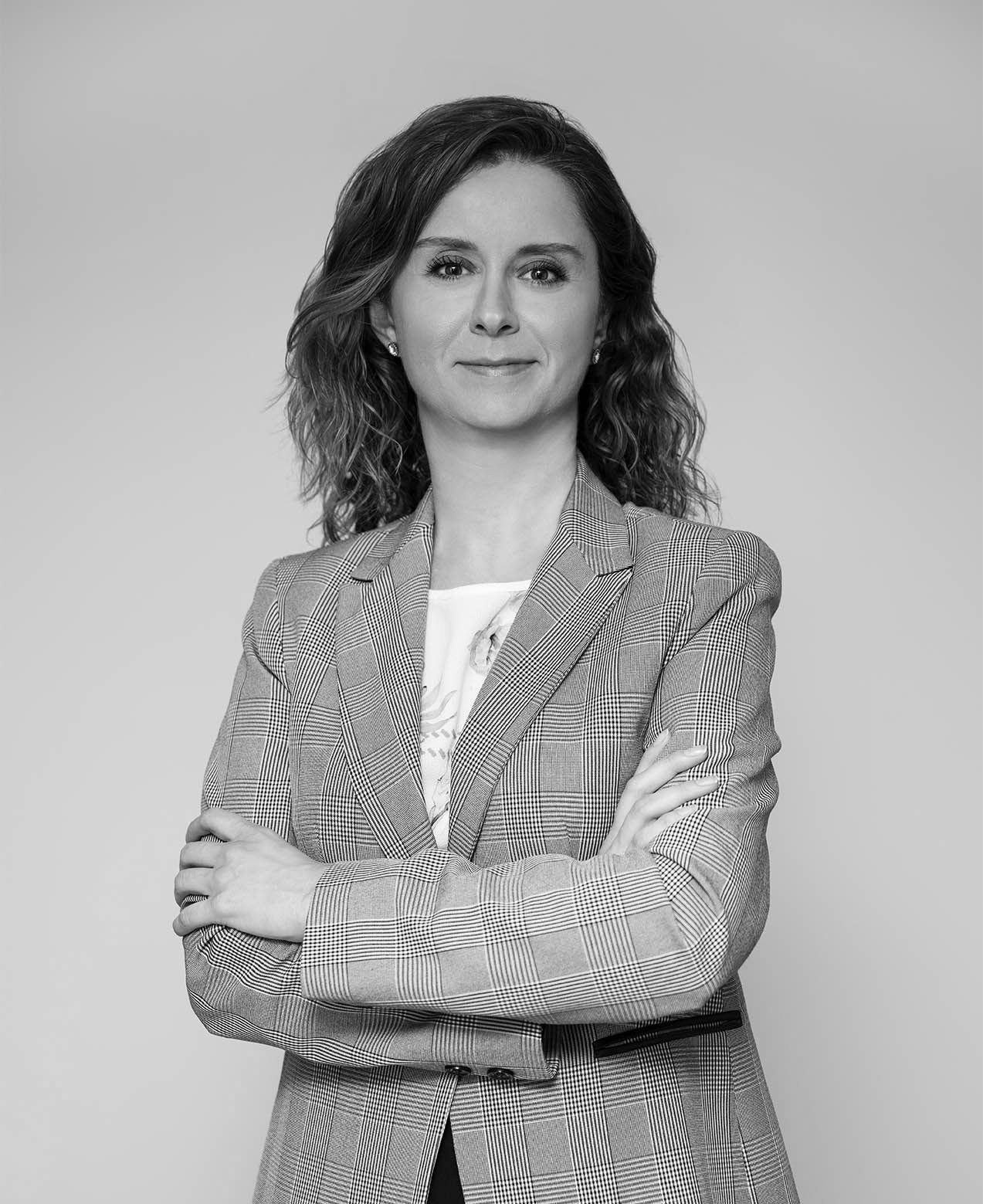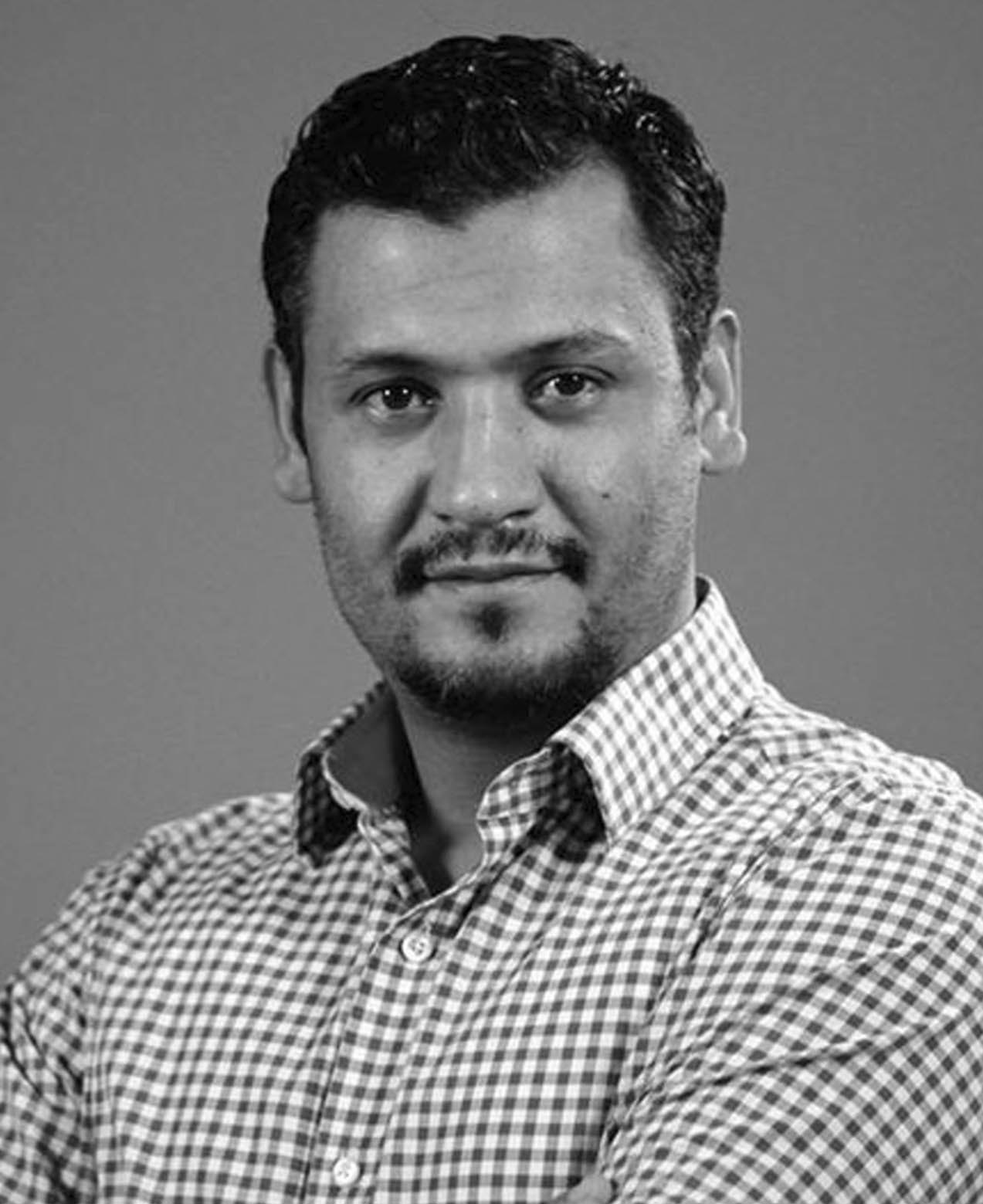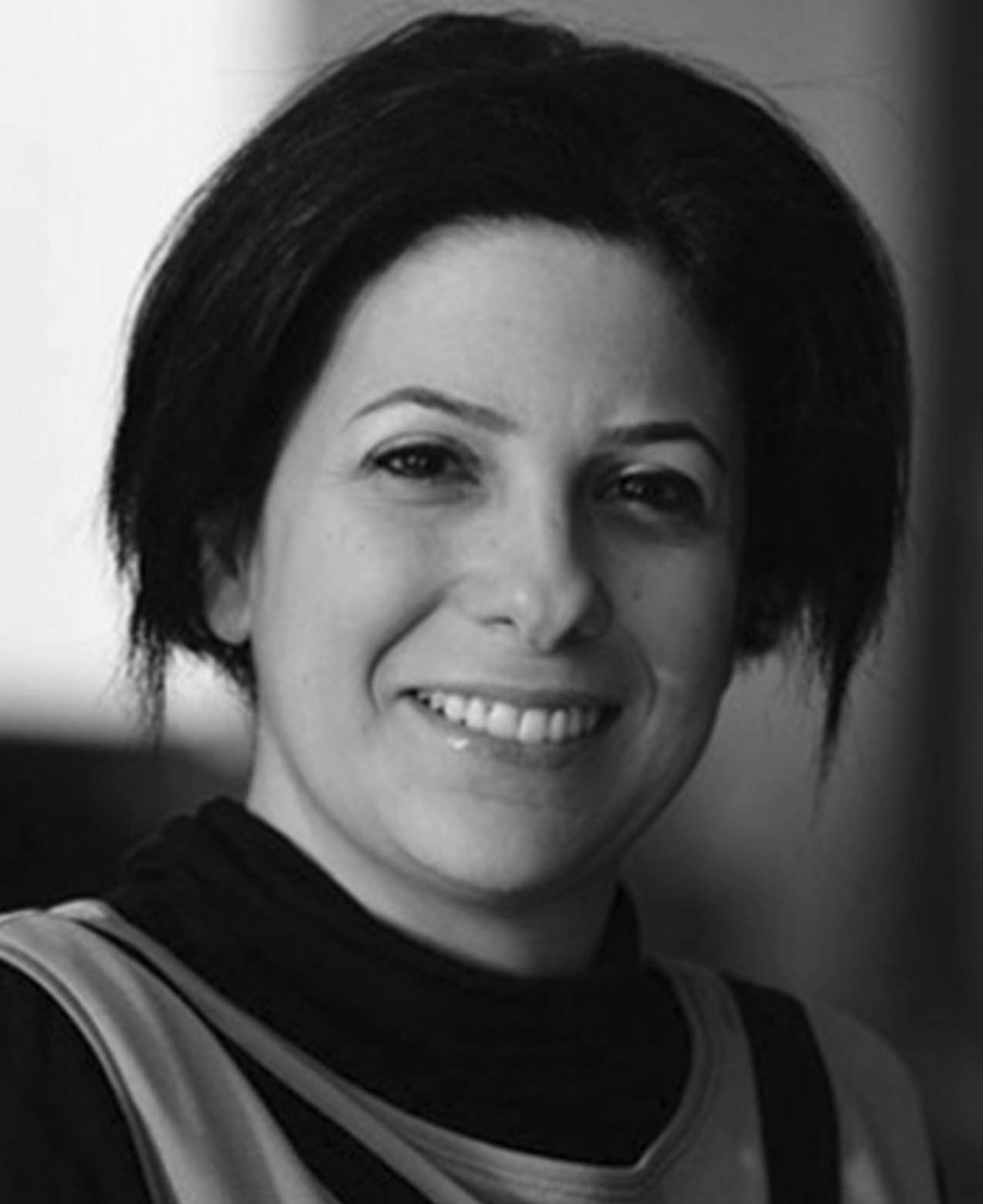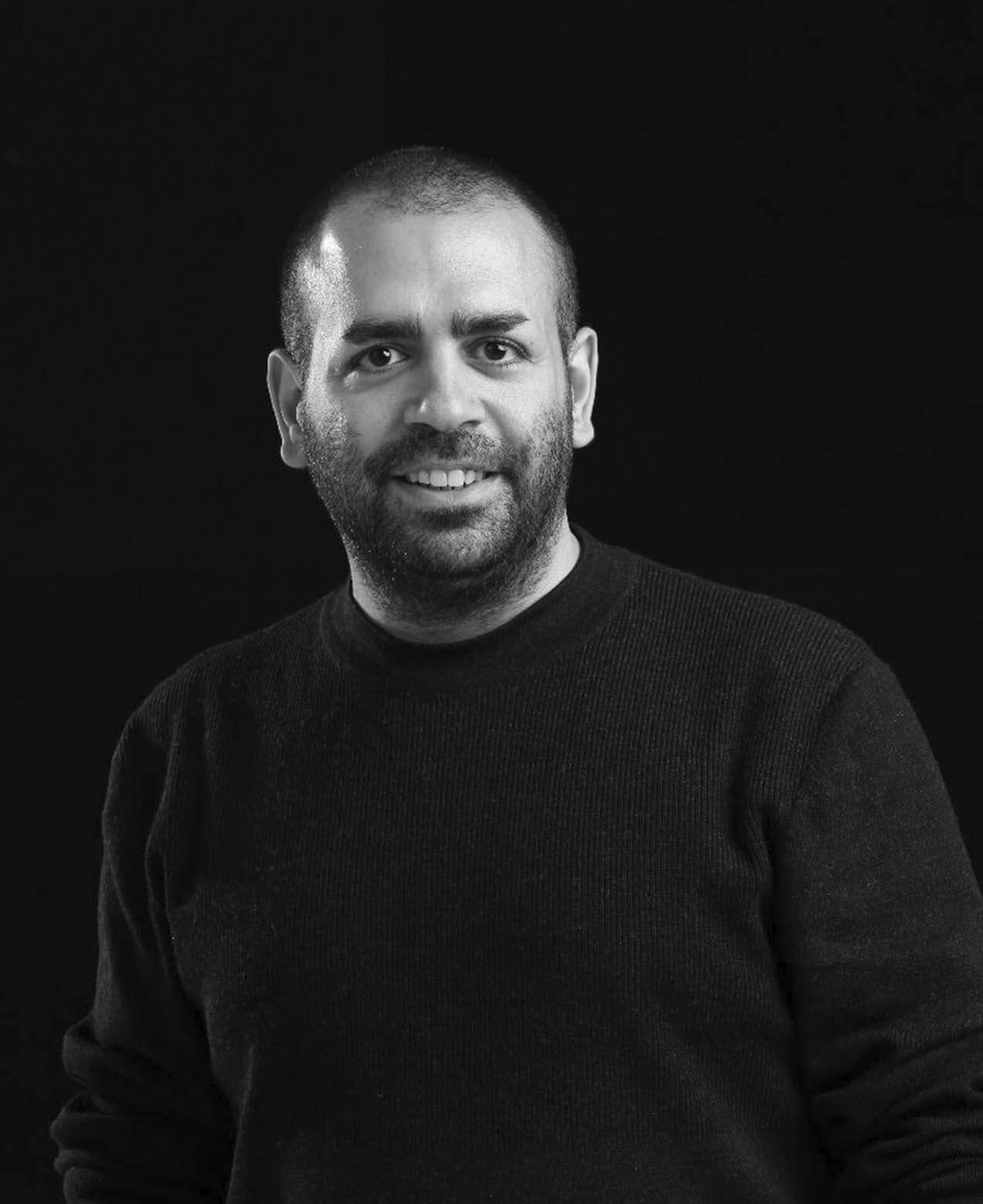Digital and Hybrid Events
To create a transparent dialogue space by bringing professionals together in webinars organized under the title of “Social Transformation and Creative Industries”, the Future Narrators dialogue series organized in cooperation with Zorlu PSM, Digilogue and İKSV, aims to bring together actors in creative industries, to open space for humanitarian dialogues between institutions and to weave support networks.
Location
Digilogue Zoom & Zorlu PSM Youtube
Date
15 September 2020
Tags
The fifth and the last session of the Future Tellers webinar series, titled “Digital and Hybrid Events”, was carried out on September 15th between 15-16 PM. The session was moderated by Merve Karaçöl from Zorlu PSM with the participation of Istanbul Ready Wear and Apparel Exporters’ Association Coordinator and Consultant to the Chairman Cemal Beyazıt, Illusionist Digital Arts Studio Founder Ahmet Gürbüz, Jules Verne Creative Projects and Organizations Manager Altan Şengül, I- MICE Association President Hüseyin Kurt, Kapital Media Marketing Director Birce Güler and HeyMo The Experience Design Company CEO Egemen Özcan. The session was simultaneously interpreted into sign language by Berrak Fırat. You can take a look at the panel’s report via this link and watch the full conversation on our Youtube channel.
The fifth session of the Future Tellers discussed the new dynamics of the panel, conference, meeting, and event sectors (MICE), which are of the sectors that can quickly adapt to the online and hybrid events and to the obligatory changes and conditions that have come with the pandemic. The session also talked about the prospective consumer expectations as well as the future predictions regarding the event industry.
For this creative industry, which receives content support from cultural industries such as advertising, fashion, tourism, and games, but is also highly intertwined with mainstream industries, the past months have not only been challenging but also very instructive and inspiring. The industry re-evaluates the data it has in terms of economic sustainability and seeks to digitally offer unique benefits in the lockdown period by focusing on content.
Participants
Merve Karaçöl
Corporate Sales Manager
Merve Karaçöl, a graduate of the Department of Tourism Management at Boğaziçi University, has been an event and venue manager, especially in the convention and meeting sectors, for more than 10 years. After working in various branches of tourism, she specialized in congress, event, and fair sales at Lütfi Kırdar International Convention and Exhibition Center and took part in various works and had the opportunity to represent her country and institution on national and international platforms. She continued her studies in the UK and Turkey on the growth of the sector at a national and global level through her master’s degrees in International Economics and Politics. Since January 2019, she is the Corporate Sales Manager at Zorlu PSM’s venues and event spaces.


Ahmet Gürbüz
Founder of Illusionist
Illusionist is a multimedia production company, founded in 2011 and comprised of young art, design, and technology professionals in a multidisciplinary structure. Producing multimedia solutions harmonizing video, animation, lighting, and sound, Illusionist offers the audience a unique experience parallel to its communication strategies. The studio combines the latest technology with artistic excellence with a wide range of services such as video mapping, opening and closing ceremonies, award ceremonies, performing arts, stadium scale works, digital museum and experience spaces, AR, VR, hologram, Kinetic lights, and motion capture.
Cemal Bayazıt
İTKİB Destek A.Ş. Founding Member
After graduating from the Department of Sociology at Hacettepe University, I started my career in 1987 at ITKIB. Apart from being the Deputy General Secretary, I took part in various positions in ITKIB’s subsidiaries. Since 2014, I have been working as a subsidiary coordinator and advisor to the president at IHKIB. I mainly carry out EU projects, KOZA, and Fashion Week on behalf of ITKIB.


Birce Güler
Kapital Media, Marketing Director
During her career, Birce Güler gained experience in marketing-related roles in the event and communication sector. She served as Event Director for seven years at Kapital Media, which includes content brands for various areas in the business world. Between 2016-2018, she worked as a Marketing Manager at Etohum, Turkey's leading start-up accelerator, and investment company, and then at Startershub, an early-stage technology seed fund. In 2018, she returned to Kapital Media as a Marketing Director and is currently responsible for the organization and marketing of various events and projects, especially Brand Week Istanbul.

Egemen Özcan
CEO & Founder HeyMo ® The Experience Design Company
Egemen Özcan is a director with 20 years of experience in the field of experience design and event marketing. Özcan, a graduate of Middle East Technical University, serves leading brands with his company HeyMo The Experience Design Company which was founded in 2017 and operates in Turkey, MENA, and Europe. HeyMo is a part of the umbrella company TBWA Group, one of the most important communication groups in the world, and in recent years has been the recipient of Agency of the Year, Start-up of the Year, Event of the Year, Creative Team of the Year awards from qualified competitions.
Videos
The event industry, which has a 30% share of the tourism revenues, generates approximately $9 billion in revenue per year, has more than 50 sub-sectors and more than 120 thousand employees in its ecosystem, stops its activities by taking heavy responsibility on the first day when the pandemic breaks out. Being probably the last sector to return to the economic life in the uncertain pandemic climate, the entertainment sector tries to survive with hybrid and digital solutions.
Democratization at the Fashion Show: Digital Evolution of Istanbul Fashion Week
This year, Istanbul Fashion Week, organized with the collaboration with Istanbul Ready-Wear and Apparel Exporters’ Association, Association of Fashion Designers, Istanbul Fashion Academy, and United Brands Association, is evolving as Turkey’s first digital fashion week. This evolution is actually the result of a project that had been planned much earlier and had to be born prematurely with sudden developments.
For Turkey, which is European Union’s second-largest supplier in the apparel & ready-to-wear as well as the 5th or 6th in the global supply, this industry is undoubtedly one of the most vital veins of its economy. The ready-to-wear industry, which has exported a total of $18 billion in the last 2-3 years, addresses hybrid and digital activities in its strategy work conducted to raise these figures to the levels of 30-60 billion dollars in the medium and long term. Following the strategy work in which the main aspects such as creating unique Turkish brands, global promotion, perception management, lobbying, designer-industry model cooperation, digital supply chain, and restructuring of production, a “Digitalization of Design and Production” themed experience center is created with the support of UN. Although the date set for digital on the road map is 2021, as a result of the pandemic bans, Istanbul Fashion Week is holding its first digital event on 12th -16th October 2020.
Will the fate of the fashion weeks, which is a privileged space due to its physical construction where there is a certain struggle for visibility on the front seats, change with the switch to the digital environment? The event, which can normally host an audience of 20,000 people for 5 days, reaches 60,000 people only in the first hours of the first day this year and opens to unlimited participation from all over the world beyond fashion professionals and buyers. A fashion show that started at 14:30 is criticized live all over the world and on all channels, and those who have missed the fashion show are offered the chance to watch it again in the evening. Digital duplication of single access to experience causes fashion professionals and buyers to deepen their decision-making processes.
Although this awareness of democratization signals that digital fashion weeks will repeat in the future, screen-to-screen interactions cannot compensate for the heartfelt part of their physical events and human interactions.
The digital event which looks low cost and fast-consumed from the outside actually consists of multiple expenses and business items such as shooting venues, promo videos, influencers, and international media.
For Istanbul, Fashion Week, which has found a place for itself on platforms such as Vogue Runway, Business of Fashion, and Joor, this international recognition has an important function for the protection, growth, and continuity of the ecosystem. The most valuable output of the collections shown during the fashion week is the conversions in sales figures. It is expected that the kg/unit price which is around 13 USD at the moment in the ready-to-wear industry in Turkey will be increased by 2 or 3 -fold, using fashion and design as leverage. All 30 Turkish designers taking part in the digital fashion week this year have an area where they can display their products and receive orders in their virtual showrooms for 1 year on the virtual sales platform Joor, which has 8500 brands and 200,000 buyers. When everything returns to normal for Istanbul Fashion Week, which has gone through a very successful digitalization phase with its high reach and global showroom; the formula seems to be the hybrid models.
“Every child has a bigger child at heart”: The event industry will survive the pandemic by producing together
Ahmet Gürbüz, the founder of Illusionist Digital Arts Studio, who has previously set an example of the successful integration of the creative industries and the digital world, where digital integration is further enhanced by adding digital integration to a physical flow on the stage in his Alice Musical practices, also sees the pandemic as a catalyst. The pandemic creates a fast, convenient, and instructive adaptation process for hybrid and virtual events that are currently being tested. The rupture created by extraordinary conditions actually indicates a merger rather than a break because the digital arts and event industry that survived the pandemic together will meet frequently in hybrid events in the future. Events, which previously hosted a certain and narrow demographic audience, gradually move towards public events with the increase of digitalization and access. The need to produce in accordance with this diversity arises.
The sudden stop of production presents a good time to create for an industry like the event sector, which rapidly changes gears and moves fast, and in a time when everyone is confined in their homes, the necessity to create multidisciplinary work as a team is remembered again. Music composers, performance artists, choreographers … The backstage of the event sector is very multidisciplinary and following the experience and know-how accumulated during the pandemic process; the teams should switch to interdisciplinary production. The cooperation and solidarity of people from different disciplines seem to be the only solution for challenging times. Actors need to be in larger structures than themselves in order to accomplish big projects. The show of the robot Çelik and Cem Yılmaz, designed for Arçelik as the world’s first live hologram talk show in 2017 is a good example of the success of interdisciplinary collaborations. The key to accomplishing bigger and more impressive works for the event industry is hidden in an Ece Ayhan quote; “Every child has a bigger child at heart.”
Understanding The Black Swan
The event industry looks like a huge puzzle with thousands of pieces. With different areas being small, medium, or large pieces, this gigantic puzzle seems to be the perfect painting for the customers and participants at the end of the day. Within this context, user expectations, experiences, and adaptation processes appear as important guides in technology-oriented events. Altan Şengül, Director of Jules Verne Creative Projects and Organizations, explains that they look at this period from the perspective of the black swan theory. This theory offers a valid definition for the COVID-19 pandemic, saying that an event that is almost impossible to predict and very unlikely to happen can only be interpreted and rationalized quickly after it occurs. And for the event managers, it is inevitable to naturally feed on this unexpected situation because one of the strongest muscles of event managers is unexpected developments.
Interaction and communication stand out as two fundamental values and unchanging expectations of event management. Event managers, who design their physical activities by considering these two values, aim to digitalize without sacrificing these values throughout the pandemic.
Jules Verne switched to the home-office model in March and has continued customer communication from home by creating small workgroups. Digital events jump on top of the to-do list and trial runs are carried out on web-based platforms. The fruits of these efforts are slowly being picked in June with the release of a trial product. In addition to online press conferences and launches, there is a return to small-scale physical events with the normalization process. While emphasizing the importance of hygiene and social distance in physical activities, uninterrupted internet connection, quality of internet infrastructure, and designing experiences in which participants can be involved in the interaction rather than looking at the screen are underlined in digitally organized events. Digital events were initially met with the resistance of the participants because it is not possible to grasp the attention of people who are fast consumers of technology for more than 20 minutes, but as investments in digital and creative ideas increase, adaptation increases with it and digital activities start being fun.
Even though reflecting vital environments that can be perceived with 5 senses such as columns, lights, stages, and acoustics is not quite possible, changing the perspective and designing sustainable, niche, and unique digital/hybrid events where creativity is encouraged at every stage is possible.
“Do you plan to switch industries?”
Addressing the issue from an even wider perspective with the interpretations and predictions of non-governmental organizations and platforms representing the industry reveals how the event sector is deeply affected by the Covid-19 pandemic. Many disruptions, such as sudden cancellations in medical congresses and conferences involving the health sector, are putting stakeholders in a difficult situation. I-MICE Association, as one of the NGOs that took the fastest action following the pandemic, has organized the National Mice Workshop on Zoom between 1-4th May. The survey conducted at this workshop, in which around 3,000-3,500 industry stakeholders participated and around 50 stakeholders shared their experiences and insights, determined the damage the industry has experienced.
In a country such as Turkey where there is an economic crisis every 7 years and there has been an ever-diminishing sense of security in daily life coupled with the ever-increasing international political crises since the year 2013, the MICE industry has already been under very dire circumstances because while financing events was getting more difficult, ensuring international participation was also getting more challenging. For Mice, which is an ecosystem and industry that actually provides self-production and employment with its structure that feeds local and urban economies, 2020 was seen as a year in which the wounds created in previous years could be healed, while 5 billion people suddenly went into a lockdown in their homes, 2.7 billion people took a break from their work, airspaces, production and supply chains, and employment were all shut down with a shock effect; turning this period into a fully-fledged crisis. Cancellations and postponements all poured down like rain in March, digital and hybrid events appear on the agenda, as well as events rescheduled for September and afterward.
Hüseyin Kurt describes the digital activities they tried in this period as a short-term transition period. Human beings are social creatures and need to perceive their environment with their five senses. Perhaps no digital chat room can replace the networking of the meetings in the foyer area. Physical activities play an important role in the ecosystem. However, Minister of Health Dr. Fahrettin Koca’s statement, “We will wait a little longer for the conventions” at a press conference in the past weeks, gave a red light to all kinds of physical activities in the eyes of the sector and the customer.
In this period when meetings, training sessions, seminars, dealer meetings, picnics, and festivals cannot be held, hybrid organizations are highlighted and those who can offer a certain level of innovation deliver. Even if all services are the same, activities with high access stand out strongly.
The Secret of Digital: Right Content Right Feasibility
Brand Week, which has a very important place in the meeting and event industry, will be held digitally this year, just like Istanbul Fashion Week.
Organized by Media Cat magazine for 10 years, the event Brand Week which is the largest business and brands collaboration event in the EMEA region has its digitalization story hidden in the content. Media Cat is positioning itself as a medium-independent content producer rather than a publisher and organizer facilitates its adaptation in the pandemic. When the pandemic broke out, they came together and established a dialogue with organizations such as the CMO Society and Creative Society, and they quickly launched the Media Cat Live series. Over 10,000 participants have attended 12 online conferences held between April and June. This digital experience both introduces Media Cat to virtual events and inspires organizing Brand Week digitally. In this process, the institution that develops its digital muscles observes that activities that are directly focused on the target audience are more successful.
Digitalization creates such an unexpected advantage for Brand Week that speakers who could not attend the event because they did not want to travel to Turkey could now be a part of the digital edition of the event as a speaker this year. The event does not host a classical sponsorship either; it stands out with projects for content and brands. So much so that some 360-degree campaign and project ideas designed with the briefs from brands’ marketing departments sometimes branch out from Brand Week and turn into projects that continue throughout the year. With digital, there is no change in this culture, brands adapt to digital very quickly during the pandemic process and Media Cat’s integration proposals are very positively received. With digitalization, it does not give up lobbying and networking events, on the contrary, events such as sponsors’ press launches, and networking meetings are reconstructed online. Birce Güler says that it is possible to properly organize digital activities with the right content and the right feasibility. As long as the content is strong, it is effective regardless of the medium, but this does not mean that digitalization is 100% sustainable, digitalization is next to the physical in ideal order.
Among the highlighted topics in the online Brand Week, which will be separately broadcast from 3 stages without an audience for 5 days on 9-13 November 2020, there are topics such as new codes of creativity, technology and culture trends, experience design, and the future of the media.
What is left when the lights go out?: The event industry sans show elements
Egemen Özcan, another professional who designs and presents experiences among guests, is organizing big digital events such as Fest Together and League of Legends during the pandemic process. At HeyMo The Experience Design, they are familiar with the habit of organizing hybrid events due to frequent business with the game industry, and after the first shock that came in March, they are working to organize events with an active, not passive, digital audience.
The year 2020 means an important halt for MICE and the culture and arts industry. Digitalization is quite possible when there is content that is transmitted only with sound at the center of the product, but it is almost impossible for products that produce and consume the excitement of decor and ambiance, such as culture and art. The job of a number of people in the event industry is to create a physical atmosphere on the stage, and these people are economically fragile due to their non-digitalized jobs. Digital does not and will never replace physical in organizing events, which is an emotion-oriented business, but the whole industry goes through this process by learning what is right and wrong. A new and progressive vision is developing in terms of democratization and outreach numbers, and physical activity will change in the future, learning from this process.
In addition to these negative insights, Özcan also talks about the successful activities they carried out during the pandemic period. As a result of Festtogether, a project of the Needs Map team, 330 thousand needs are met, and a strong benefit is created. The festival which was held online was viewed 12.5 million times in 24 hours; becoming the 5th most viewed show in the world and number one in Turkey.
League of Legends’ final organization is shot on the green box and broadcast live. A virtual environment is set up in the foyer where the participants can take photos as if they are really at the event in flesh and blood. This event, which has a very full and vibrant digital fiction such as brand areas, award-winning games of brands, games that are played, and an imaginary city where one can cross over the Bosphorus Bridge, undoubtedly feeds on the digital know-how and experience of the gaming industry.
HeyMo The Experience Design also organizes events such as an online game tournament with Red Bull in which the Anatolian and European sides compete in the middle of the Bosphorus, and the online launch of the National Team jersey with Nike.
These digital activities and infrastructure works bring differentiation along with growth as well. Everyone’s focus on digitalization at the same time will create an expanding product range. As it is not possible to capture the attention with performance and show elements within the digital just like in physical activities, there is a refocusing on content. The importance of content development is emphasized. For example, in webinars that are based only on fixed speakers, every word spoken by the speakers is worth gold for the audience.
From Screens to Hearts
The experiences of the MICE industry, which was the main subject of the panel, actually point to the prominent values of today: Sincerity, sharing, and democratization. With an unexpected devastating epidemic, a unique space for innovation and creativity is emerging in the event industry. Without departing from economic realities, new accessible opportunities are designed in consideration of growth targets. The preference of institutions and brands is shifting from pretentiousness to clear and effective content. The digital and hybrid events which make the producers win, which do not merely position and tire out the consumers as infinite receivers, on the contrary, position the participants as active and productive consumers and once strike a balance at the gold ratio between communication and interaction are now standing out as the long-awaited fruits of a tiring process. The interpretation of the data accumulated in the background of these events increases the added value of future businesses. However, the rapid adaptation of the Mice sector to digital relative to other creative industries does not point to a complete digitalization because the venue/city does not lose its importance as a catalyst for emotion-centered, social interaction-centered events and creativity. On the contrary, the importance of meeting and solidarity with an interdisciplinary production is emphasized. When everything returns to normal, the industry seems to embrace a new screen-to-heart format, blending the opportunities offered by digital, such as democratization, with physical activities with a unique impact.

